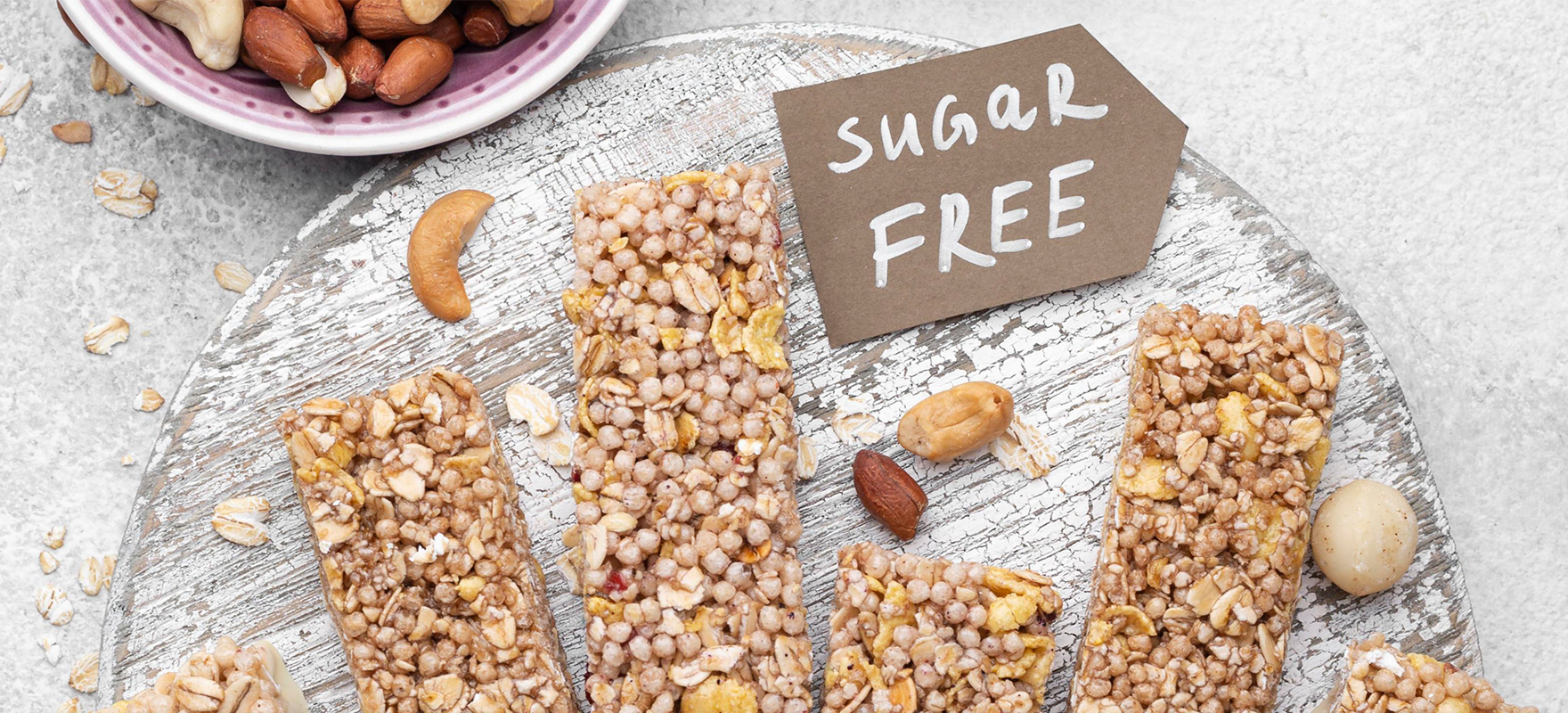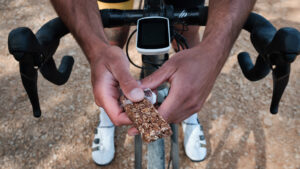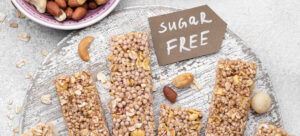Do you reach for snack bars that claim to be sugar-free, thinking they are a healthier option? It’s time to take a closer look at those labels and ingredients to see if they are truly sugar-free.
Many snack bars marketed as sugar-free may contain other sweeteners, such as high fructose corn syrup, honey, or agave nectar. These sweeteners may be just as harmful to your health as sugar. In fact, some studies suggest that high fructose corn syrup may be even worse for your health than sugar.
It’s important to read the ingredient list carefully and understand what sweeteners are being used in your snack bars. Don’t be fooled by marketing claims and flashy packaging. By being sugar-conscious and informed, you can make healthier snack choices for yourself and your family.
Understanding Sugar in Snack Bars
When it comes to snacking, many of us opt for snack bars as a quick and easy option. However, not all snack bars are created equal, especially when it comes to sugar content. Understanding the different types of sugar in snack bars can help you make informed choices about what you’re putting into your body.
Added Sugars
Added sugars are any sugars that are added to a food product during processing. These can include white sugar, brown sugar, corn syrup, and other sweeteners. Added sugars can be found in many snack bars, even those marketed as “healthy” or “natural.” Be sure to check the ingredients list for any added sugars, and keep in mind that they can go by many different names.
Natural Sugars
Natural sugars are sugars that occur naturally in foods like fruits, vegetables, and dairy products. While these sugars are still a form of sugar, they are generally considered to be healthier than added sugars because they come packaged with other nutrients like fiber, vitamins, and minerals. Look for snack bars that contain natural sugars from sources like dates, figs, and other fruits.
Sugar Alcohols
Sugar alcohols are a type of sweetener that are often used in sugar-free snack bars. While they are lower in calories than sugar, they can still have a laxative effect if consumed in large amounts. Look for snack bars that use sugar alcohols like erythritol or xylitol in moderation.
Delving Deeper into Sweeteners Used in Snack Bars
The array of sweeteners found in snack bars extends beyond the commonly recognized refined sugars. High fructose corn syrup, a prevalent sweetening agent in processed foods, has faced scrutiny due to potential health risks. Studies indicate its correlation with obesity, insulin resistance, and adverse effects on metabolic health. This calls for a closer examination of labels, not solely relying on “sugar-free” claims but understanding the sweetening agents used.
Honey and agave nectar, often perceived as healthier alternatives, are marketed for their natural origins. However, they carry their own share of concerns. While they possess certain nutritional benefits compared to refined sugar, their high fructose content could potentially impact individuals managing specific health conditions, such as diabetes or insulin sensitivity.
Unraveling Misconceptions in ‘Healthy’ Snack Bars
Marketing tactics often emphasize the health attributes of snack bars, leveraging terms like “organic,” “raw,” or “natural” to attract health-conscious consumers. Nevertheless, these labels might mask the reality of the bar’s actual sugar content. It’s a common scenario where seemingly healthy bars house added sugars, leading to a higher-than-anticipated sugar load. This discrepancy between perception and reality underscores the necessity of scrutinizing ingredient lists beyond marketing claims.
The Profound Impact of Sugar on Overall Health
The repercussions of excessive sugar consumption extend far beyond weight gain. Sugar intake has been linked to an array of health issues, including heightened risks of diabetes, cardiovascular ailments, mental health disorders, and cognitive decline. Personal anecdotes of individuals witnessing remarkable health improvements after reducing sugar intake emphasize the profound impact of moderating sugar consumption.
Deciphering the Complexities of Sugar Labeling
The landscape of sugar labeling can be intricate and misleading. Manufacturers often employ various terms for added sugars, causing confusion among consumers. Familiarizing oneself with these terms—whether it’s sucrose, glucose, maltose, or any other form of added sugar—is pivotal for making informed choices. Scrutinizing labels empowers consumers to discern and opt for healthier alternatives.
Prioritizing Natural Sugars and Whole Food Ingredients
Natural sugars present in whole foods, such as fruits, vegetables, and dairy products, come packaged with vital nutrients like fiber, vitamins, and minerals. Opting for snack bars incorporating these natural sugars from sources like dates, figs, or other fruits provides a harmonious blend of sweetness and nutritional value. Additionally, seeking out bars that integrate nuts, seeds, and whole grains offers sustained energy without the drawbacks of excessive sugar intake.
Understanding the Role of Sugar Alcohols
Sugar alcohols serve as common sweeteners in sugar-free bars, boasting reduced calorie content. However, excessive consumption of sugar alcohols may lead to digestive issues. Recognizing the types of sugar alcohols—erythritol, xylitol, sorbitol—and comprehending their effects on blood sugar levels aids in making informed decisions. Opting for bars utilizing these sugar alcohols judiciously ensures a balanced approach to sugar-free snacking.
Empowering Informed Snack Choices
Equipping yourself with knowledge about sugar content and its diverse forms in snack bars fosters a mindful approach to snacking, contributing to overall better health.
Navigating the landscape of sugars within snack bars demands vigilance. Labels claiming “sugar-free” often mask various sweetening agents like high fructose corn syrup, honey, and agave nectar, challenging our perception of healthier options.
The discrepancy between marketed healthiness and actual sugar content underscores the necessity for meticulous ingredient scrutiny. Terms like “organic” or “natural” can obscure added sugars, highlighting the importance of a discerning eye.
Scientific evidence emphasizes the far-reaching impact of sugar on health, extending beyond weight concerns. Understanding sugar labeling nuances empowers consumers to differentiate between natural and added sugars, steering them toward bars with whole food ingredients and natural sweeteners.
While sugar alcohols provide lower-calorie alternatives, mindful consumption is prudent due to potential digestive effects. This highlights the need for a balanced approach when selecting sugar-free bars containing these sweeteners.
Armed with knowledge and discernment, navigating snack bar labels enables informed choices. Preferring bars rich in natural sugars from fruits, nuts, seeds, and whole grains satisfies cravings while offering nutrient-dense snacking options.
In the pursuit of sugar-conscious snacking, education, label scrutiny, and a preference for whole food-based ingredients pave the way for astute snacking decisions. Prioritising healthier alternatives aligns with a quest for a balanced lifestyle.
Leading image: Image by Freepik





